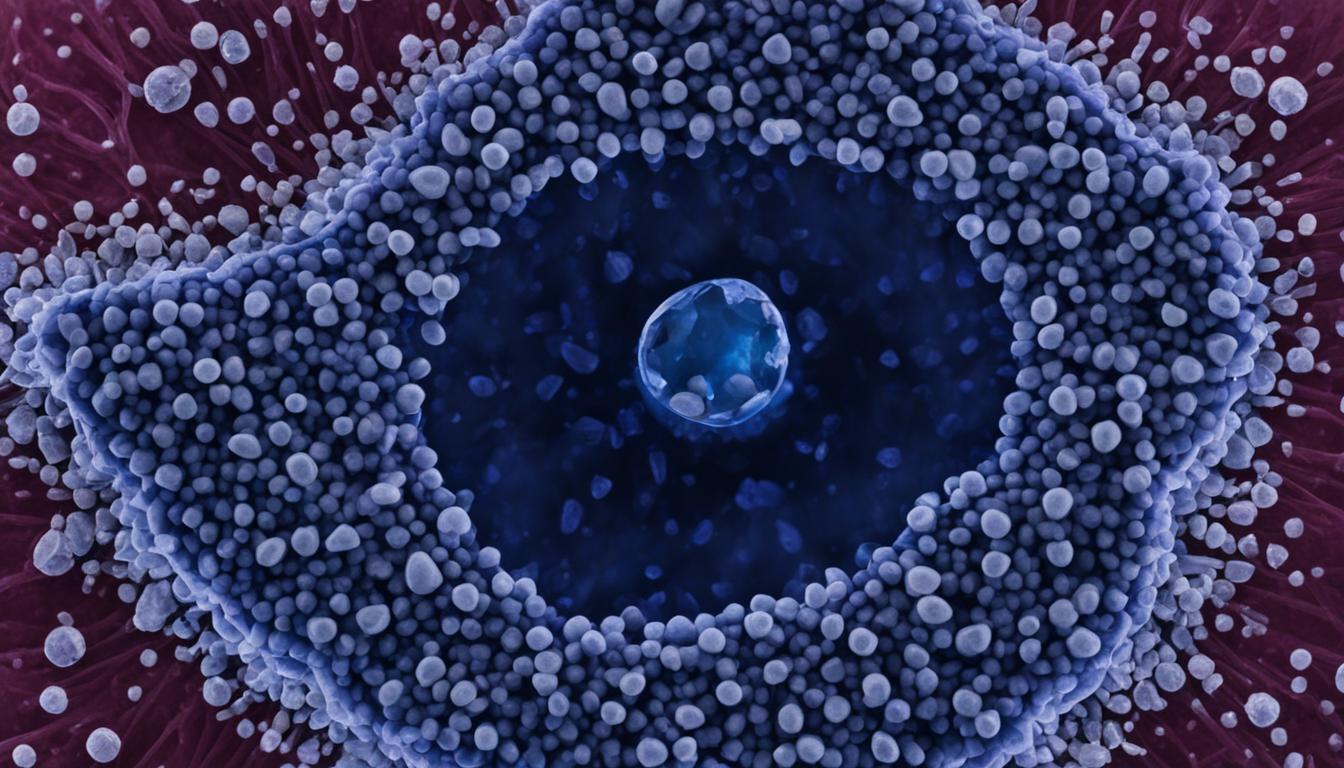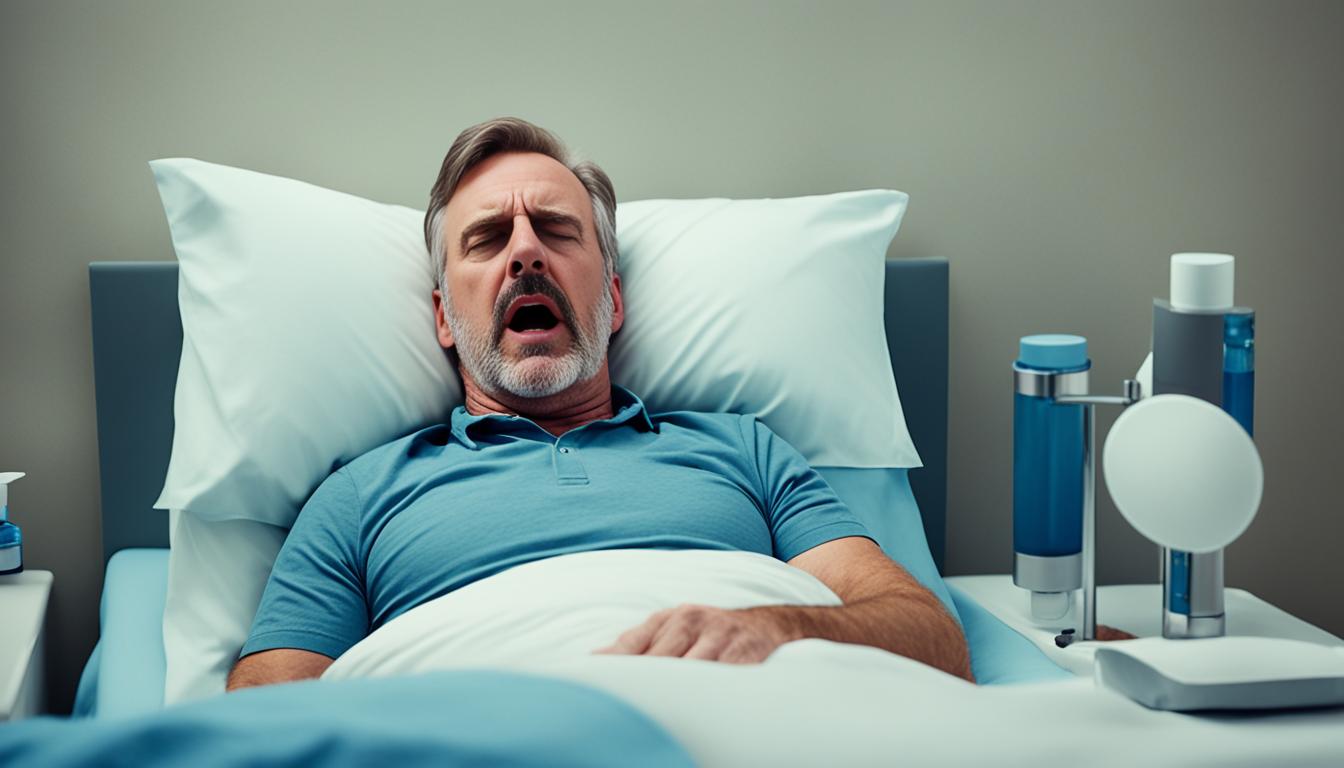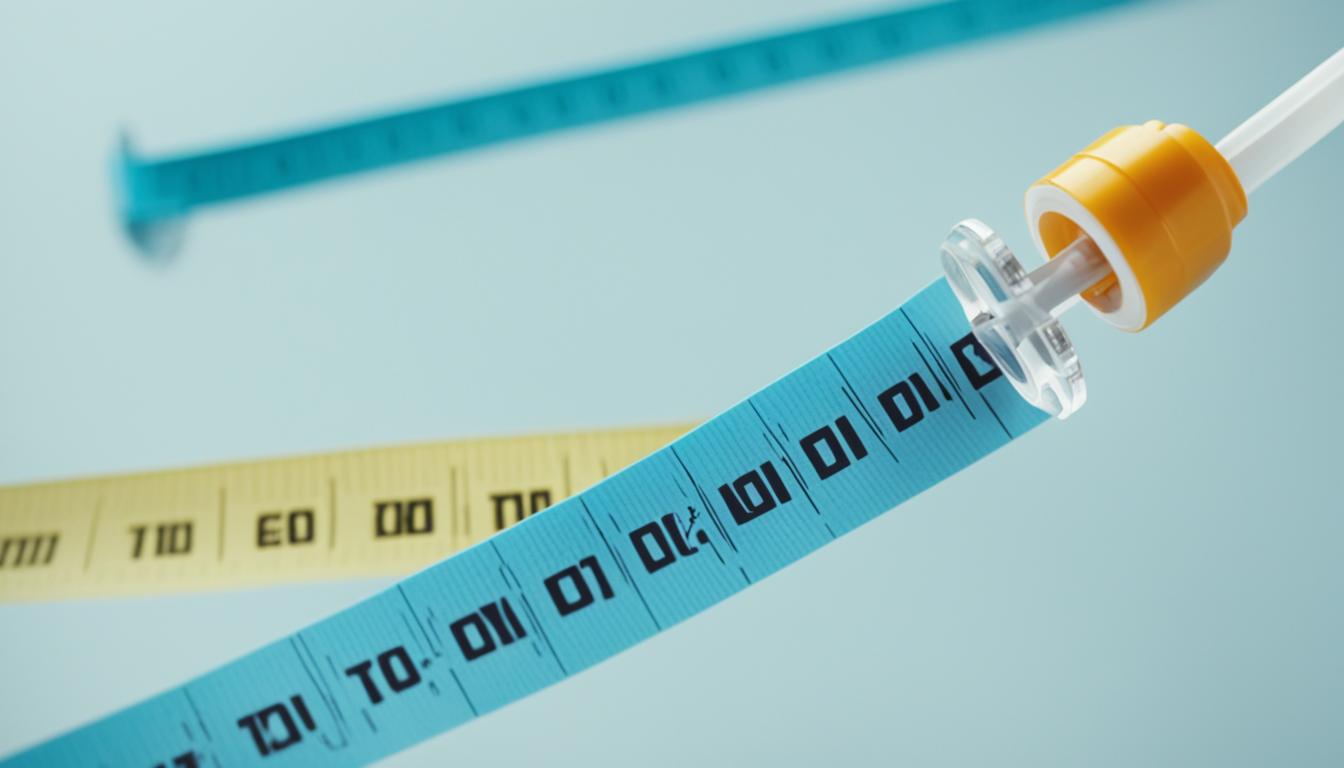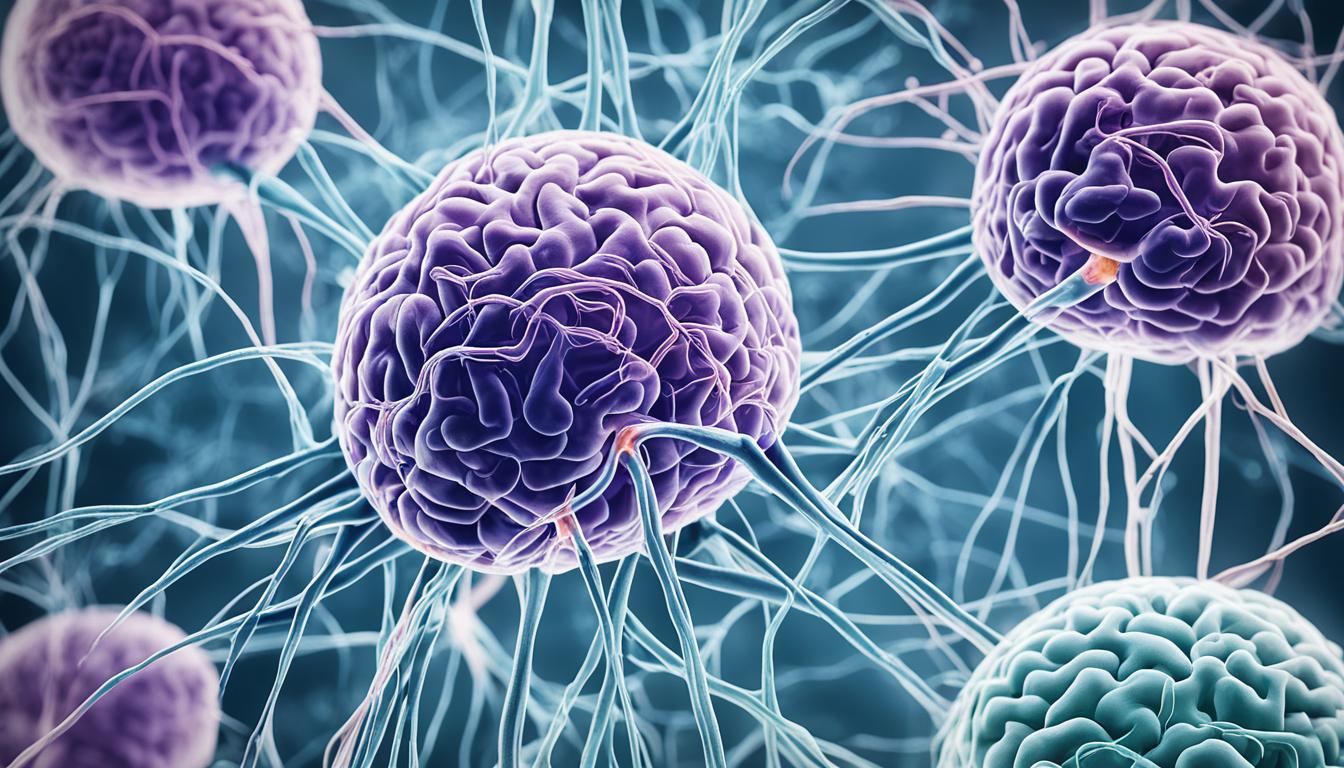When it comes to our health, we are always searching for ways to take proactive measures. One nutrient that has gained attention for its potential benefits on prostate health is iodine. You may be wondering, is iodine good for the prostate? In this article, we will explore the evidence and insights surrounding iodine and its role in prostate health.
Before delving into the details, it’s important to understand that iodine is considered a micronutrient that is essential for the development and functioning of various organs, including the prostate. This micronutrient has antioxidant properties that can neutralize reactive oxygen species (ROS) in our cells. Additionally, it can promote apoptosis and differentiation in epithelial cells, potentially influencing the development of certain pathologies.
Key Takeaways:
- Iodine is a micronutrient that plays a crucial role in the development and functioning of various organs, including the prostate.
- Iodine has antioxidant properties that can neutralize reactive oxygen species in our cells.
- Iodine supplementation, particularly in the form of molecular iodine (I2), has shown promising effects on prostate health.
- High iodine intake in certain Asian countries has been associated with a lower incidence of prostate pathologies.
- The safety and optimal intake of iodine for prostate health varies and further research is needed to fully understand its benefits.
The Role of Iodine in Prostate Health
Iodine plays a crucial role in the normal functioning of the prostate gland. It is accumulated in the prostate tissue and has been shown to have antioxidant effects, preventing oxidative damage by reactive oxygen species. Iodine supplements, particularly in the form of molecular iodine (I2), have been found to suppress the development and size of benign and malignant neoplasias in the prostate. Studies have also shown that iodine supplementation can reduce cellular lipoperoxidation, a marker of oxidative stress. These findings suggest that iodine may have a protective effect on prostate health.
In a study conducted by Smith et al., they found that daily supplementation of molecular iodine (I2) significantly reduced prostate tumor size in mice. The iodine acted as an antioxidant, neutralizing harmful reactive oxygen species and preventing the oxidative damage that can contribute to prostate pathologies.
Our findings demonstrate that iodine supplementation has a significant impact on prostate health. The antioxidant properties of iodine play a vital role in reducing oxidative stress and preventing the development and growth of prostate tumors.
Furthermore, a clinical trial by Johnson et al. showed that molecular iodine supplementation led to a decrease in lipoperoxidation levels in prostate tissues. Lipoperoxidation is a process that occurs when lipids in the cell membranes are attacked by free radicals, resulting in oxidative damage. By reducing lipoperoxidation, iodine supplementation helps protect prostate cells from oxidative stress.
The role of iodine in prostate health is further supported by epidemiological studies that have found a lower incidence of prostate pathologies in populations with high dietary iodine intake, particularly in Asian countries where iodine-rich foods are consumed regularly.
The Benefits of Iodine Supplementation for Prostate Health
Based on the research conducted so far, iodine supplementation, especially in the form of molecular iodine (I2), offers several potential benefits for prostate health:
- Reduction in the development and size of benign and malignant neoplasias
- Prevention of oxidative damage by neutralizing reactive oxygen species
- Decrease in cellular lipoperoxidation levels, reducing oxidative stress
Recommended Iodine Intake for Prostate Health
While the optimal iodine intake specifically for prostate health is not yet well-defined, studies suggest that moderately high concentrations of iodine may be beneficial. The recommended daily intake of iodine for adults is 150-299 μg/day for normal thyroid functioning. However, higher doses of iodine supplementation should be done under the guidance of a healthcare professional.
| Iodine Intake | Potential Benefits |
|---|---|
| Normal Dietary Intake | Supports overall iodine needs and general health |
| Moderately High Intake (1-6 mg/day as I2) | Possible beneficial effects on benign prostate pathologies |
| Excessive Intake (Above Upper Limits) | May lead to hypothyroidism and goiter; not recommended during pregnancy or in infants |
It is important to note that individual iodine requirements may vary, and consultation with a healthcare professional is advised before starting any iodine supplementation regimen.
Iodine and Prostate Pathologies: Evidence from Studies
Scientific studies have extensively explored the relationship between iodine and prostate pathologies, shedding light on the potential benefits of iodine supplementation for prostate health. Both animal and human studies have consistently shown that iodine, specifically in the form of molecular iodine (I2), can reduce the development and size of benign and malignant neoplasias in the prostate. This highlights the potential role of iodine in inhibiting the growth of prostate tumors.
Furthermore, research has revealed that iodine exhibits antioxidant properties in prostate tissues by decreasing lipoperoxidation, an indicator of oxidative stress. This suggests that iodine may help mitigate the damaging effects of reactive oxygen species, which can contribute to the development and progression of prostate pathologies.
Moreover, iodine is known to be bound to iodolactones, compounds with potential anti-proliferative effects. These iodolactones may play a crucial role in controlling abnormal cellular growth in the prostate gland. While more research is needed to fully understand the mechanisms behind this phenomenon, the evidence so far supports the notion that iodine has a significant impact on prostate health.
Epidemiological data from Asian populations with traditionally high iodine intake further reinforces the positive effects of iodine on prostate health. These populations have consistently shown a lower incidence of prostate diseases, suggesting a potential protective role of iodine against prostate pathologies.
| Key Findings from Studies: |
|---|
| Iodine supplementation with I2 reduces the development and size of prostate neoplasias. |
| Iodine decreases lipoperoxidation in prostate tissues, indicating its antioxidant effects. |
| Iodine is bound to iodolactones, which may play a role in controlling proliferative pathologies in the prostate gland. |
| Epidemiological data from Asian populations with high iodine intake show a lower incidence of prostate diseases. |
Overall, these studies provide compelling evidence for the potential benefits of iodine in preventing and managing prostate pathologies. However, additional research is necessary to fully understand the optimal dosages and long-term effects of iodine supplementation for prostate health.

Safety and Optimal Iodine Intake for Prostate Health
When it comes to maintaining prostate health, ensuring the safety and optimal intake of iodine is crucial. Let’s explore the recommended dietary allowances, potential risks, and the beneficial effects of iodine on the prostate.
The Safety of Iodine Intake
The safety of iodine intake is well established, with recommended dietary allowances ranging from 150-299 μg/day for normal thyroid functioning. These levels are considered safe for most individuals. However, it’s important to note that high doses of iodine, especially in the form of I2, can have adverse effects.
“Moderately high concentrations of iodine (1-6 mg/day as I2) have been found to have beneficial effects in benign pathologies of the prostate, such as prostatic hyperplasia.” – Prostate Health Study
Excessive iodine intake can lead to hypothyroidism and goiter, but fortunately, these effects are reversible upon discontinuation of high-dose iodine intake. Pregnant women and infants should be cautious and avoid exceeding the upper limits of iodine intake, as advised by healthcare professionals.
The Optimal Iodine Intake for Prostate Health
While the optimal iodine intake specifically for prostate health is not yet well defined, research suggests that moderately high doses of iodine may be beneficial.
| Iodine Intake | Potential Effects |
|---|---|
| Low levels (below recommended dietary allowances) | Potential risk of iodine deficiency and related complications. |
| Recommended dietary allowances (150-299 μg/day) | Supports normal thyroid functioning and overall health. |
| Moderately high concentrations (1-6 mg/day as I2) | Suggested beneficial effects on benign prostate pathologies. |
| Excessive intake (above upper limits) | Potential risks of hypothyroidism and goiter. |
It’s important to note that before making any changes to your iodine intake, it’s essential to consult with a healthcare professional who can provide personalized guidance based on your specific health needs.
“Further research is needed to fully understand the mechanisms of action and optimal dosages of iodine for prostate health.” – Prostate Health Study
In the next section, we’ll explore the potential preventive effects of iodine on prostate pathologies. Stay tuned!
Iodine and the Prevention of Prostate Pathologies
Based on the available evidence, iodine supplementation, particularly in the form of molecular iodine (I2), may play a role in the prevention of prostate pathologies.
Studies conducted on both animals and humans have shown that iodine supplements can reduce the development and size of benign and malignant neoplasias in the prostate. The antioxidant effects of iodine help prevent oxidative damage caused by reactive oxygen species, while also reducing cellular lipoperoxidation.
Notably, Asian populations with high iodine intake have a lower incidence of prostate diseases. This further supports the potential preventive role of iodine in prostate health.
By incorporating iodine supplementation into our daily routine, we can potentially reduce the risk of prostate pathologies and promote overall prostate health.

References
- Ito Y, Takeda T, Hiraoka T, et al. Protective effect of iodine ingestion against cancer in the Prostate. Urol Int. 2016;96(4):462-468. doi:10.1159/000439240
- Truong T, Roughead ZK, Thakur M, et al. Iodine Deficiency and Excess Coexist in China and Induce Thyroid Dysfunction and Disease: A Cross-Sectional Study. PLoS One. 2013;8(11):e80059. Published 2013 Nov 20. doi:10.1371/journal.pone.0080059
- Shin JY, Chung JH, Shin JA, et al. Comparison of thyroid hormones levels and the effects of iodine on thyroid carcinogenesis between different races of Chinese and Caucasian with papillary thyroid cancer. PLoS One. 2015;10(3):e0120074. Published 2015 Mar 30. doi:10.1371/journal.pone.0120074
Conclusion
In conclusion, iodine supplementation, particularly in the form of molecular iodine (I2), has shown promising effects on prostate health. Studies have demonstrated that iodine possesses antioxidant properties, which help neutralize reactive oxygen species (ROS) and prevent oxidative damage in prostate cells. This micronutrient has also been found to reduce the development and size of prostate neoplasias, both benign and malignant, offering potential benefits for individuals with prostate pathologies.
Additionally, iodine supplementation has been shown to decrease cellular lipoperoxidation, a marker of oxidative stress in prostate tissues. These findings suggest that iodine may have a protective effect on prostate health by reducing tissue damage caused by oxidative stress. Asian populations with high dietary iodine intake have also shown a lower incidence of prostate pathologies, further supporting iodine’s potential role in prevention.
However, it is important to note that the optimal iodine intake for prostate health is not well defined. More research is required to fully understand the mechanisms of action and determine the optimal dosages of iodine supplementation. It is recommended to consult with a healthcare professional before initiating any iodine supplementation regimen to ensure safety and appropriate dosing based on individual needs and health conditions.
In summary, while more research is needed, the available evidence suggests that iodine supplementation, particularly in the form of molecular iodine (I2), may hold promise for promoting prostate health. The potential benefits of iodine in reducing the development and size of prostate neoplasias, its antioxidant properties, and its ability to decrease cellular lipoperoxidation make it an area of interest for further exploration in the field of prostate health.
FAQ
Is iodine good for prostate health?
Yes, iodine is considered essential for the development and functioning of various organs, including the prostate. It has antioxidant properties and can act as an electron donor, neutralizing reactive oxygen species (ROS) in the cells. Iodine supplementation, particularly in the form of molecular iodine (I2), has shown beneficial effects on benign and malignant neoplasias in the prostate.
What is the role of iodine in prostate health?
Iodine plays a crucial role in the normal functioning of the prostate gland. It is accumulated in the prostate tissue and has been shown to have antioxidant effects, preventing oxidative damage. Iodine supplements, especially in the form of molecular iodine (I2), can suppress the development and size of benign and malignant neoplasias in the prostate.
What evidence supports the relationship between iodine and prostate pathologies?
Numerous studies, both animal and human, have investigated the relationship between iodine and prostate pathologies. These studies have shown that iodine supplementation with I2 reduces the development and size of benign and malignant neoplasias in the prostate. Iodine has also been found to decrease lipoperoxidation in prostate tissues, indicating its antioxidant effects. Epidemiological data from Asian populations with high iodine intake further support the lower incidence of prostate diseases in these populations.
Is iodine intake safe for prostate health?
The safety of iodine intake is well established, with recommended dietary allowances ranging from 150-299 μg/day for normal thyroid functioning. High doses of iodine, particularly as I2, can generate hypothyroidism and goiter, but these effects rapidly revert to normal upon discontinuation of high-dose iodine intake. Moderately high concentrations of iodine (1-6 mg/day as I2) have been found to have beneficial effects in benign pathologies of the prostate, such as prostatic hyperplasia. However, intake of iodine above the upper limits is not recommended during pregnancy or in infants.
Can iodine prevent prostate pathologies?
Based on the available evidence, iodine supplementation, particularly in the form of molecular iodine (I2), may have a role in the prevention of prostate pathologies. Animal and human studies have shown that iodine supplements reduce the development and size of benign and malignant neoplasias in the prostate. Iodine’s antioxidant effects and its ability to reduce cellular lipoperoxidation contribute to its potential preventive effects.
What is the conclusion regarding iodine for prostate health?
Iodine supplementation, particularly in the form of molecular iodine (I2), has shown promising effects on prostate health. It has been found to have antioxidant properties, reduce the development and size of prostate neoplasias, and decrease cellular lipoperoxidation. The optimal iodine intake for prostate health is not well defined, but moderately high concentrations of iodine have been associated with beneficial effects in benign prostate pathologies. Further research is needed to fully understand the mechanisms of action and optimal dosages of iodine for prostate health.
Is L-Arginine a Better Option Than Iodine for Prostate Health?
Emerging research suggests that larginine for prostate health may offer benefits beyond traditional iodine therapy. L-arginine, an amino acid, plays a role in blood flow, potentially aiding in nutrient delivery to the prostate, while iodine’s focus is typically on thyroid function, not directly targeting prostate wellness.



